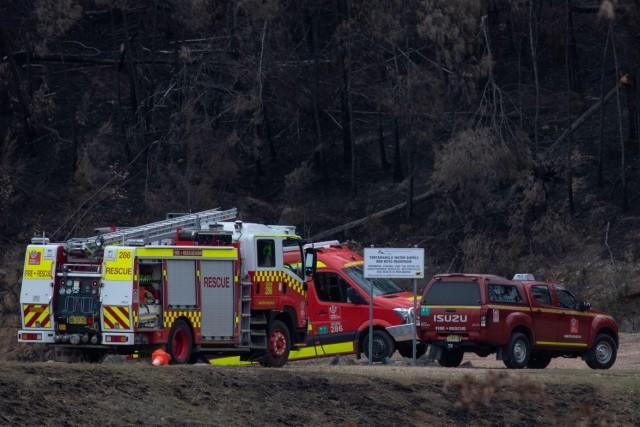Australian firefighters get reprieve after tough night

SYDNEY, Australia - Bushfire conditions on Australia's east coast eased on Saturday after a tough night for firefighters and authorities said they expect to have at least a week of milder weather where they can improve defenses against the huge blazes still burning.
A strong southerly wind change on Friday night, with gusts of more than 100 kph (60 mph) recorded, whipped up a number of fires to the emergency warning level, but by Saturday morning conditions had eased.
One person in New South Wales (NSW) had suffered serious burns defending a property and was taken to a Sydney hospital.
"It would appear that we have got at least a week, it will probably be the best seven days we have had without a rise of very dangerous fire ratings," NSW Rural Fire Service Commissioner Shane Fitzsimmons told a media briefing.
"So, some reprieve. An opportunity for firefighters and affected communities to consolidate and allow us to try and get the upper hand on all these fires."
But authorities were clear the risk was far from over and people should not be complacent, with two months of summer still left, and an unexpected weather change could see fires flare up again.
Across NSW, nearly 150 fires were still burning, more than 60 of which were not contained, but none were at emergency level.
One fire was still burning at emergency level in Victoria.
Authorities in the state were also looking to use the expected week-long break from severe conditions as an opportunity to prepare for the remainder of the fire season.
A number of fires burning in the Snowy Mountains region in NSW and across into Victoria have merged. The fires that combined have more than 600,000 hectares (1.5 million acres) of land in total.
Thousands of Australians took to the streets on Friday to protest against government inaction on climate change, and were supported by protesters in London.
Since October, 27 people have been killed and thousands subjected to repeat evacuations as huge and unpredictable fires scorched more than 10.3 million hectares (25.5 million acres) of land, an area roughly the size of South Korea. — Reuters




